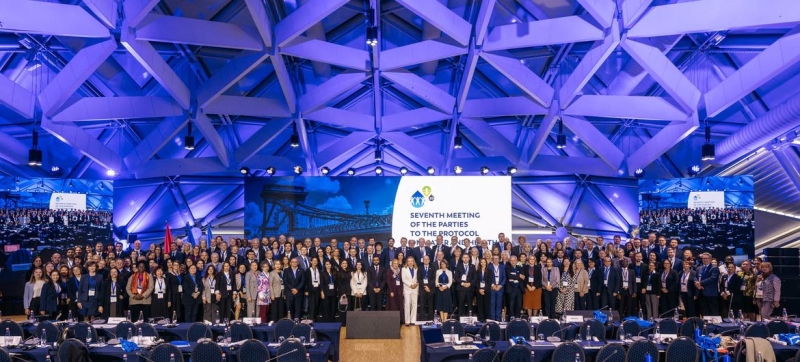
The Protocol on Water and Health now includes 29 parties. Uzbekistan acceded to the Protocol on Water and Health Climate and Environment
Uzbekistan has acceded to the Protocol on Water and Health, supplementing the Transboundary Water Convention. This was one of the key events of the meeting of the parties to the Protocol in Budapest, which takes place on November 5–7. The document now brings together 29 parties working to strengthen water, sanitation and hygiene systems in the WHO European Region.
Issues of hygiene, sanitation, water and health are very relevant for Uzbekistan, which has an arid climate. This was stated by Olga Mirshina, a participant in the meeting, specialist of the Committee for Sanitary-Epidemiological Welfare and Public Health of the Ministry of Health of Uzbekistan.
“Uzbekistan is in the center of Central Asia and is a country that is very much affected by both climate change and water supply issues,” she said. According to Mirshina, the arid climate of the region affects sanitation conditions and the water supply system.
“We decided that the Protocol would be one of those tools that will help us and will help us further promote the issues of safe drinking water supply, safe sanitation and the introduction of safe hygiene in all public facilities,” explained specialist.
Protocol helps ensure public access to clean water
The Protocol, which has been in force for two decades since 2005, helps states ensure access to clean water, sanitation and hygiene for all segments of the population. This unique, legally binding document remains the only international agreement that directly links the areas of ecology, water resources and health.
Ministers and other delegates from more than 40 countries gathered in Budapest. They discuss experiences in addressing critical issues and the work program for the next three years.
The protocol, jointly maintained by the United Nations Economic Commission for Europe (UNECE) and WHO Europe, paved the way for the recognition of the human right to water and sanitation by the UN General Assembly in 2010. Since then, he has played a key role in promoting this right in the region and serving as an example for other parts of the world.
Over two decades, the document contributed to improving the quality of drinking water and the development of hygienic practices. However, as UNECE Executive Secretary Tatiana Molchan noted, there are still many challenges. environment and the emergence of new threats, such as cyber threats, the challenge before us becomes even more urgent,” she emphasized. Guterres noted that the Protocol’s work “has shaped policies and investments to improve access to safe water and sanitation, prevent water-related diseases, and improve people’s health.” conditions.
According to WHO, in the European region, 118 million people receive health care in institutions where basic sanitation conditions are lacking. Every day, 14 people in the region die from diseases related to unsafe water and lack of hygiene.
